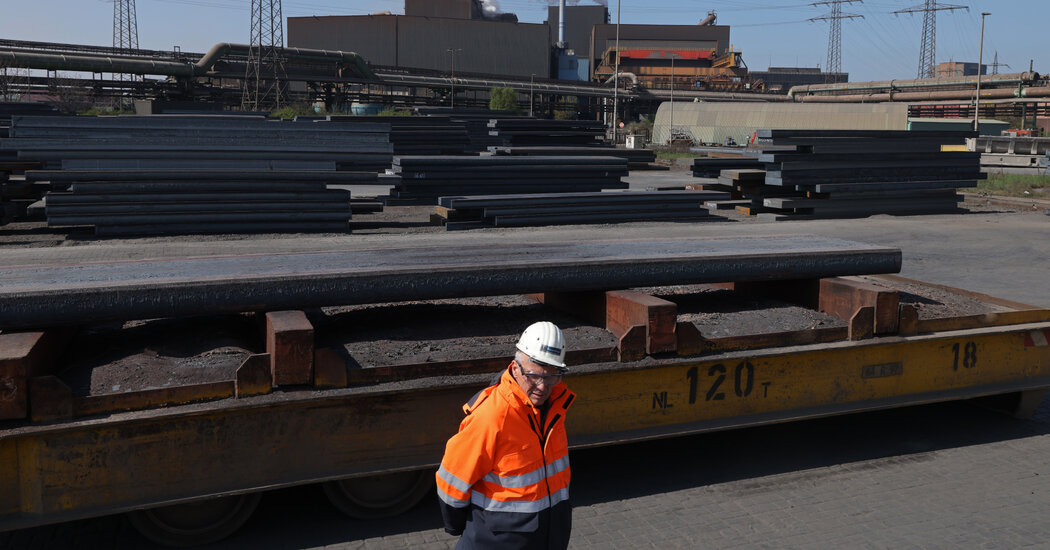The bloc had voted to impose retaliatory measures just before President Trump made his last-minute U-turn. It has now announced a postponement.
Reporting from Brussels
E.U. officials announced on Thursday that they would delay their plans for retaliatory tariffs after President Trump’s abrupt decision to hit pause on some of the levies he had placed on Europe and much of the rest of the world.
Mr. Trump’s announcement, a day before, had signaled what European leaders were hoping for: a possible willingness to negotiate.
Washington’s pivot came just hours after European officials had approved retaliatory levies of 10 to 25 percent on about $23 billion of U.S. imports. But given the American shift in stance, E.U. leaders said on Thursday that they would take a 90-day pause of their own.
“If negotiations are not satisfactory, our countermeasures will kick in,” Ursula von der Leyen, president of the European Commission, announced in a statement. “Preparatory work on further countermeasures continues.”
The Trump administration is specifically pausing what it has called “reciprocal” tariffs — across-the-board taxes that apply in different amounts to different countries. Mr. Trump announced those levies on April 2 and said that the European Union would face a levy of 20 percent. With his about-face on Wednesday, the bloc would most likely instead face a 10 percent across-the-board tariff for the next 90 days.
But the 25 percent tariffs that Mr. Trump has placed on both cars and on steel and aluminum seemed to be still in place — and the retaliation that Europe approved on Wednesday was in response to those metal-sector tariffs, not to the tariffs that Mr. Trump has now delayed. The retaliation plan would have applied tariffs of 10 to 25 percent on a wide range of goods, including soybeans, peanut butter and hair spray. Officials will now “take a bit of time to think, take a bit of time to analyze, take a bit of time to reflect,” Olof Gill, a spokesman for the European Commission, said at a news conference on Thursday.
We are having trouble retrieving the article content.
Please enable JavaScript in your browser settings.
Thank you for your patience while we verify access. If you are in Reader mode please exit and your Times account, or for all of The Times.
Thank you for your patience while we verify access.
Want all of The Times? .
Source: www.nytimes.com
